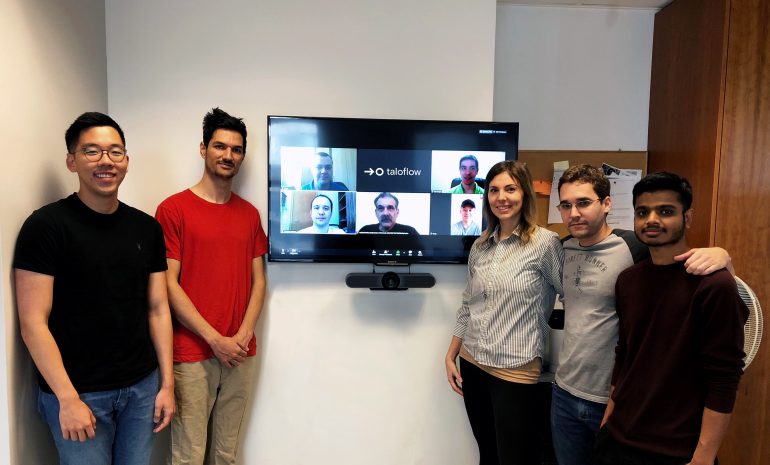Vancouver-based Taloflow has raised a $1.1 million pre-seed round as the company shifts its product market-fit.
Initially launched as LocoNoco, the company raised $500,000 in May 2018 to tackle the emerging robot software automation industry. In an interview at the time, Taloflow co-founder and CEO Louis-Victor Jadavji—who is also one of the co-founders of Wiivv—explained that business logic required in building enterprise applications hasn’t always been transportable or reusable.
Since then, the company rebranded to Taloflow and raised another round led by Victory Square Technologies. Participating investors in this round include Plug and Play Ventures, David Tedman, co-founder of Hootsuite and Invoke, Ross Wightman, founding engineer of Avigilon, and Aly Madhavji, founder of the Blockchain Founders Fund.
“As a software architect with a finance background, it’s fascinating to see the paradigm shift for how infrastructure budgets are managed,” said Todd Kesselman, Taloflow CTO. “What was once easy to provision by the finance department is now dynamic, variable, and unpredictable for many organizations.
“We did a lot of digging, a lot of customer discovery, and talking to a lot engineers and we realized there’s a huge problem with cloud costs today.”
Targeted to enterprises, Taloflow’s offering allows companies to set up alerts and cloud workload automations based on metrics and events that have a direct impact on business objectives, costs, and performance in real-time. The company is tackling the issue of wasted cloud spend with its Taloflow Instance Manager (Tim), an automated assistant that informs developers of more efficient ways to provision cloud resources. The solution is currently only available on platforms using Amazon Web Services.
Taloflow, which was accepted into Batch one of the Plug and Play Enterprise 2.0 Accelerator based in Sunnyvale, California, plans to use the funding for marketing and growth. It’s targeted to mid-sized tech companies who are often using more cloud resources, and thinking more about cost optimization than larger businesses with legacy systems.
Speaking with BetaKit about the pivot, Jadavji said a solution like LocoNoco took a lot of “convincing” that it would be the future of digital transformation, while cloud cost reduction is easier for potential customers to understand. However, the team said it’s still using what it’s already built with LocoNoco.
“As we were working with two of our enterprise customers, more and more we realized that our general approach to building developer tools and helping out with automation and AI, [and] we realized that approach was too general, so we wanted to get specific about a particular problem we wanted to solve,” said Jason Kim, VP of product. “We did a lot of digging, a lot of customer discovery, and talking to a lot engineers and we realized there’s a huge problem with cloud costs today and it’s difficult to manage cloud resources and difficult to build automation for those resources.”
Currently, engineers have to take on resource management on their own, manually reviewing each step and identifying cost-saving areas. Jadavji indicated that ultimately, Taloflow’s solution would help companies avoid the “sticker shock” of cloud costs. “It’s amazing how much people waste on the cloud just leaving things running and abandoning things and resources,” said Jadavji. “Because the cloud is so easy to spin and so quick and easy to set up, it’s like a utility. You start to use it, then all of a sudden it’s like the sticker shock with a roaming bill when you’re traveling overseas. I think the statistic is that the first few cloud builds that an enterprise gets is two to three times above expectations. It’s a shock to most people.”


